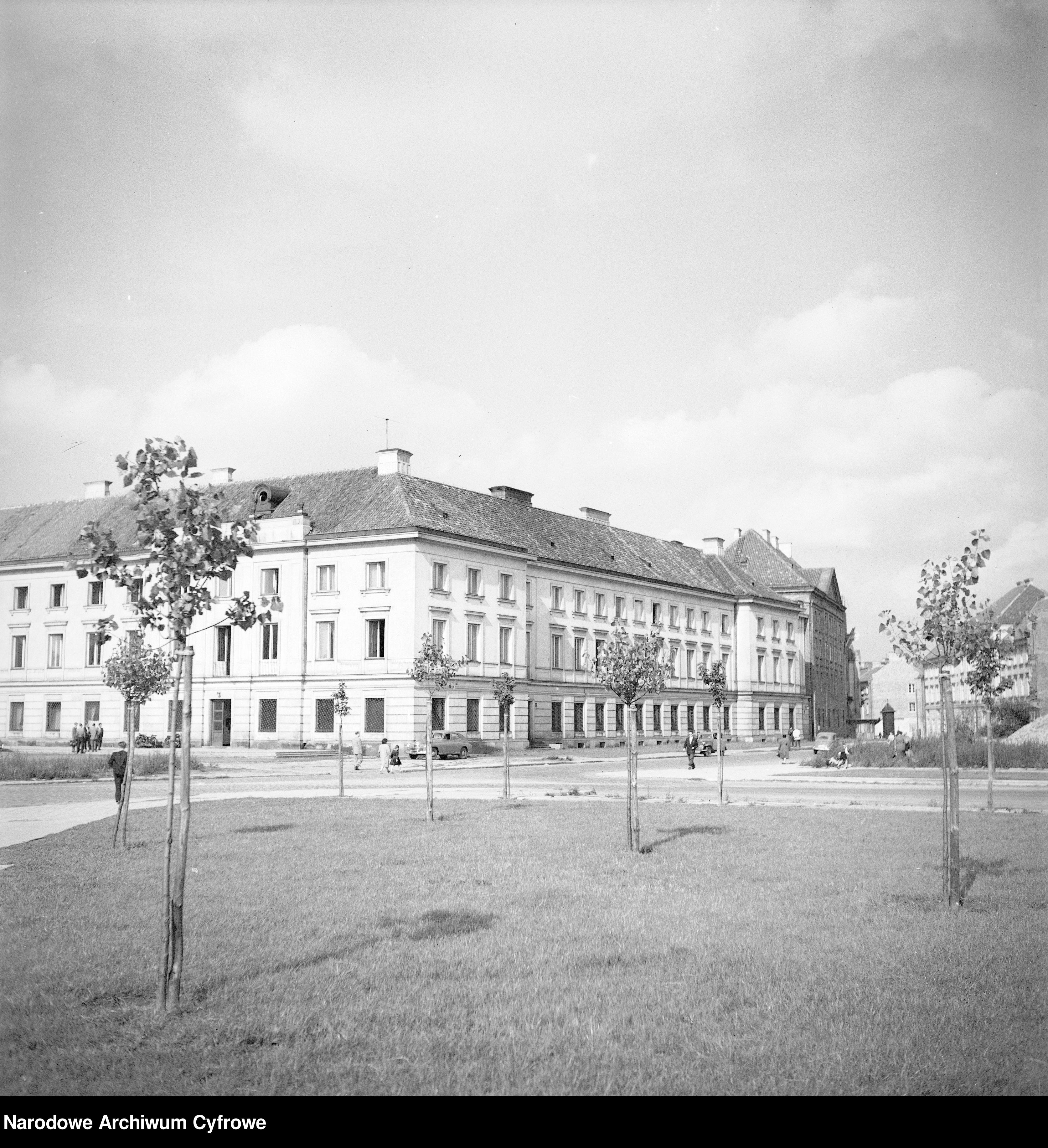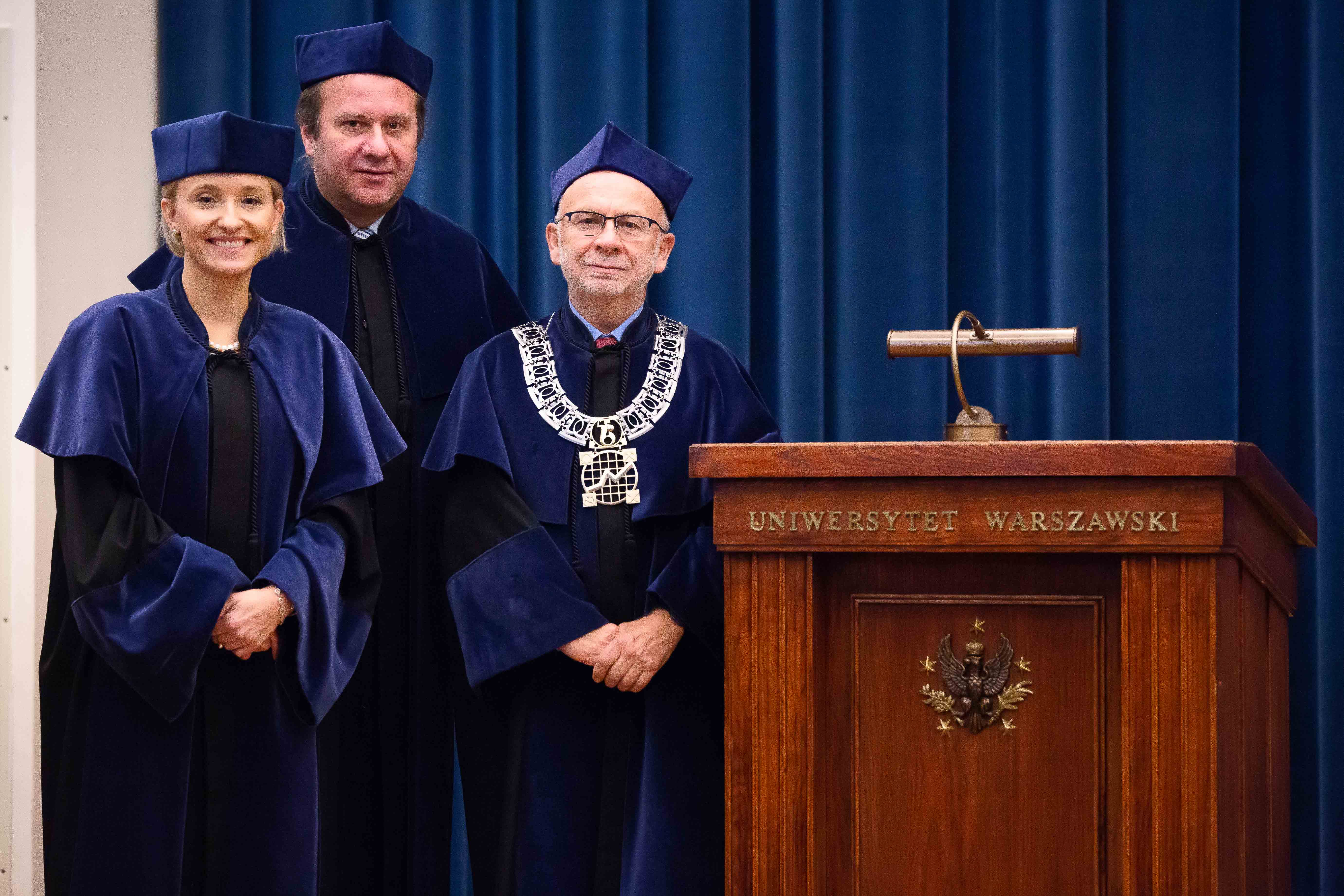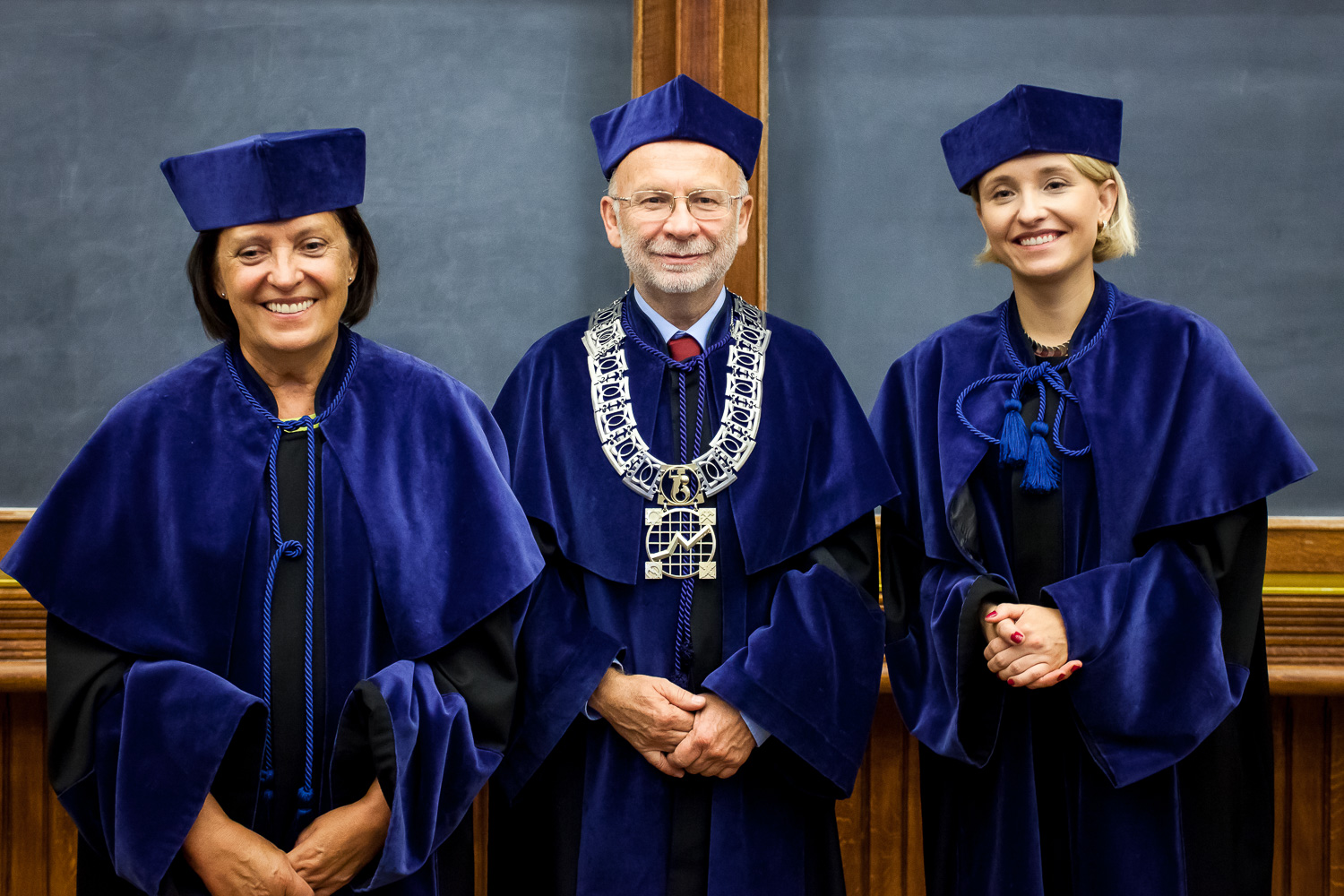History of the Faculty

From the very start, the study of economy has been present at UW; from 1816 to 1953, economic sciences were taught within the Faculty of Law and Administration. Initially, the curriculum included political economics, financial science, statistics, and commercial law and science, among other subjects. Although there were attempts to establish a new unit for economics, e.g., a project from 1819 by Fryderyk Skarbek for the creation of a department of political economics, economic sciences did not have a separate organisational unit at UW until the mid-20th century.
It was not until 1950 that the Department of Political Economics was established, and on 7 September 1953, a separate Faculty of Political Economics was established at the University of Warsaw, which had its headquarters in Kazimierzowski Palace. It consisted of six departments, divided into sub-departments. The Department of Political Economics had a key role, along with others such as the Department of the History of Economic Thought, and the Department of the History of the National Economy of Poland under the supervision of Prof. Witold Kula, the Department of Economics and Planning of the National Economy, the Department of Accounting, and the Department of Statistics. In September 1957, the Faculty was enlarged by two departments: the Department of Econometrics, and the Department of International Economic Relations. The early 1960s brought further changes in the organisational structure of the Faculty.
Between 1956 and 1965, the Faculty flourished, and along with other Warsaw institutions -- the Warsaw School of Planning and Statistics, and the Interuniversity Institute for the Economy of Poorly Developed Countries -- became a significant centre for research on the economy of development. In 1965-1968, after the death of Oskar Lange and as a result of the "March events" (1968), the dynamics of the Faculty's development and its intellectual potential began to weaken. On 30 March 1968, studies at the Faculty of Political Economics were dissolved, students lost their student rights, and the Dean of the Faculty, Prof. Bobrowski, resigned from his position. The "March events" led to the suspension of the Faculty's activities, and it was then transformed into the Institute of Economic Sciences, functioning within the newly-established Faculty of Social Sciences. The Institute was located in the building at ul. Nowy Świat 69, and when it was moved again, it received the headquarters at ul. Długa, where it is located today.
In 1977, the Faculty of Economic Sciences was established, and its first Dean was Prof. Wiesław Krencik. The Faculty was divided into institutes and sub-departments. In 1981, the organisational structure of the Faculty underwent further adjustments; the institutes were dissolved, and traditional departments were established.
The 1980s and 1990s brought fundamental changes in the process of educating students at the Faculty of Economic Sciences. In the first decade, the changes concerned the study programmes, and in the second, other areas of the Faculty's teaching activities. Programmes and fields of study were changed, specialisations were introduced, and the postgraduate studies were expanded. This was made possible by increasing the independence of the faculties in determining the courses, methods, and content of education.
At the turn of 1989/1990, there was also a revival of direct contacts with foreign academic centres. Classes at the Faculty were taught by professors from the best foreign universities. One of the first was Prof. Leonid Hurwicz, who later won the Nobel Prize in economics, in 2007. In 1989, Professor Hurwicz accepted an invitation to hold seminars for graduate students and doctoral candidates at FES UW. Another employee of the Faculty was Professor Stanisław Wellisz from the University of Columbia (1992-2000), who initiated the creation of the Department of Microeconomics and the first WNA master's programme, which was fully in accordance with American standards.
The following years brought changes to the names of fields of study; starting from the academic year 1991-1992, the Faculty's courses included Economics, Computer Science and Econometrics, as well as International Economics and Political Relations, as well as a fourth new field of study, Finance and Banking.
In addition to foreign cooperation, the Faculty also began to develop partnerships with national centres and other entities within the University of Warsaw. In the academic year 2001/2002, the Interdisciplinary Economics-Mathematical Bachelor's Studies were established, which were conducted jointly by the Faculty of Economic Sciences and the Faculty of Mathematics, Informatics and Mechanics UW, and a year later, Interdisciplinary Economic-Mathematical Studies were created jointly with the Faculty of Management UW.
In 2017, as a result of consultations with the FES UW Employers' Council and the Faculty Students' Government, the Faculty of Computer Science and Econometrics was created, along with Data Science, which in later years was transformed into one of the leading English-language programmes at FES UW, Data Science and Business Analytics.
Currently, the Faculty of Economic Sciences is nearly 70 years old and remains a leading academic and research centre in the field of economic sciences, valued by national and international scientific communities.
The current activities of the Faculty focus on two main areas: conducting high-quality research within the framework of numerous domestic and foreign projects, and also ensuring first-rate education (confirmed by international standards) in the fields of study it offers.


